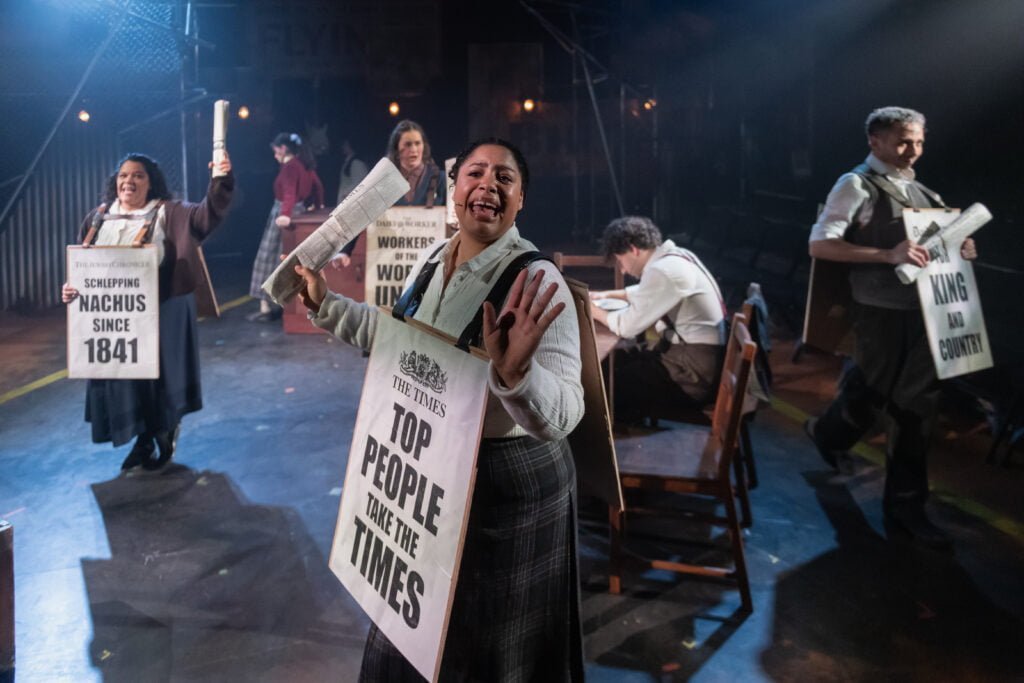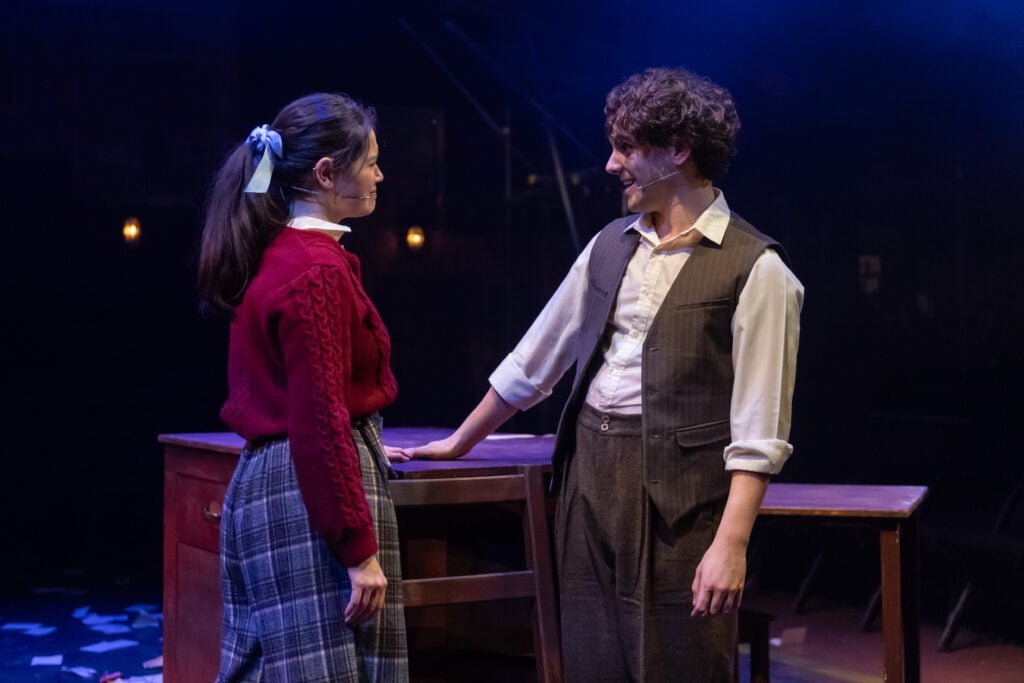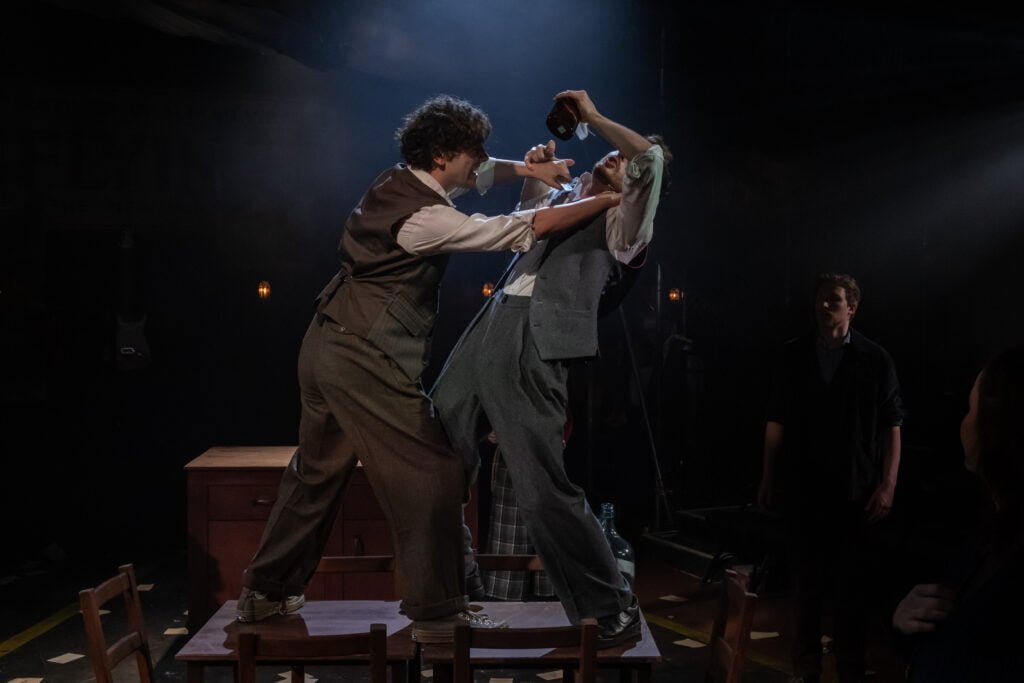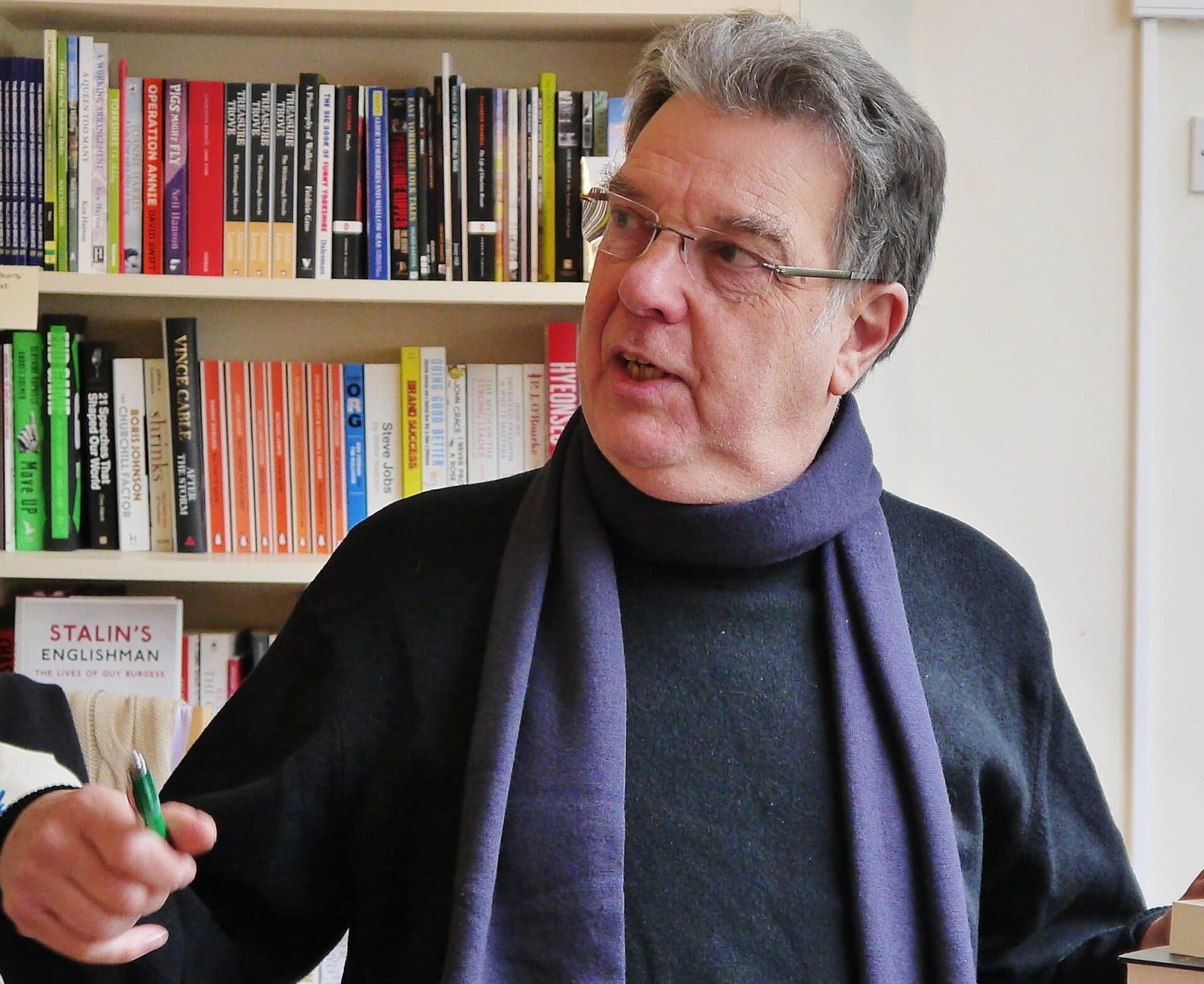Talking Down to the 1930s
“They Shall Not Pass! “
The message of socialists, trade unionists, immigrants and dock workers who were ready to meet the fascists

The 1936 Battle of Cable Street, as it became known, is credited with being the moment the tide of British fascism was turned back, though most historians now think Oswald Mosley’s British Union of Fascists had already started to crumble. A new musical by Tim Gilvin and Alex Kanevsky at the Southwark Playhouse celebrates the moment when Mosley was prevented from leading his Blackshirts through the east end of London. So many of them were assembled, determined to stop the march, that London’s police commissioner instructed Mosley not to proceed.
Mosley agreed, calculating that he could gain from being seen to be the law and order party. He may also have had in mind, though no one else knew it, that he was expected two days later at the home of German Propaganda Minister Joseph Goebbels, to marry Diana Mitford in secrecy, so it was not a good moment for him to risk arrest.
But to triumphant east enders, the only thing that mattered was that they had stopped the racists from marching through their territory.

Historically, it’s nothing like as big a moment as it’s cracked up to be, but it has become a symbol of opposition to fascism and racism, which is why it’s timely to talk about it now, when a leading politician – a former vice chair of the ruling Conservative party – talks about Muslims controlling London in just the same way that Mosley talked about Jews controlling London in 1936.
That, I think, accounts for the packed houses, and the rapturous reception the show received the night I was there, and I think receives most nights. It shows that Londoners understand the times they live in. This was an audience that knew that when a character on stage said something shocking about Jews, you only had to substitute Muslims and it could have been Lee Anderson MP.
But as a piece of theatre, does it work? At one level, yes. It’s a noisy, tuneful, heroic celebration, told without much subtlety but with verve and brio.

But as a piece of theatre, does it work? At one level, yes. It’s a noisy, tuneful, heroic celebration, told without much subtlety but with verve and brio.
There are a lot of fine, energetic, talented performers on the Southwark Playhouse stage, whom it is a joy to watch. My personal standouts were Sha Dessi as a young Irishwoman, with a wonderful, wild, strong singing voice and a personality to match; and Jez Unwin, a magnificently accomplished character actor who manages to play a fascist local commander, a religious Jew, and a modern tour guide, and to get so deep under the skin of each of these very different characters that he is utterly convincing every time, even though we recognise him.
For me, though, the show wanted to be joyful just a little too much. It was noisy and tuneful until suddenly there were far too many people on the small stage, and unidentified leaflets were being thrown from the balcony, and you had lost track of which was the Jewish family, which the Irish family, which the family with a young fascist in it.

It seemed almost to patronise the anti-fascists by presenting them joyfully and heroically. There was no real attempt to show how fascists got that way. True, one young man with whom we sympathise, unable to get work, threatened with eviction, becomes a fascist and we understand why – but he is, implausibly, thrown out of the British Union of Fascists within days. In the real world, that young man would have left in his own good time, when he saw fascism for what it was.
The historically absurd scene in which he is expelled has uniformed fascists acting like parody sinister Nazis – “ve are asking ze kvestions.” It makes fascism no more dreadful – in fact, it almost sanitises fascism – to have its adherents behaving like stage villains from a children’s play.
Some of the best ideas seem stale. The central romance – Jewish boy and Irish girl fall in love – was done much better, and given the complexity that it lacks here, in Martin McNamara’s Mosley Must Fall. A song “The rich blame the poor, The poor blame the rich, And everyone blames the Jews” has more than an echo of Tom Lehrer’s famous National Brotherhood Week: “The white folks hate the black folks, The black folks hate the white folks, And everyone hates the Jews.”
At over 2 ½ hours including interval, the show is a little longer than either the music or the plot can stand. But it has charm, and talent, and musicality, and love, and it ends satisfactory with everyone uniting to fight the landlords. Its heart is in the right place, and it’s very, very timely.


Francis Beckett is an author, journalist, playwright and contemporary historian. He was the 2009 winner of the Ted Wragg Award for lifetime achievement in education journalism.
His latest two plays are A Modest Little Man (about Clement Attlee) and Vodka with Stalin.
Musical Numbers
Act One
Overture
My Street
What Next?
Ists and isms
BUF Anthem
Read All About It
Making a Mark
Let Me In
Bread and Roses
With enough pressure
Bread and Roses (reprise)
Read All About It 2
No Pasaran.
Act Two
Entr’acte
Only Words
The Battle
Sunrise
Read All About It 3
Stranger/Sister
One More Thing
Shut Me Out
Final Sequence
Production Notes
Cable Street
Directed by Adam Lenson
Cast
Starring:
Danny Colligan
Jade Johnson
Jez Unwin
Max Alexander-Taylor
Sophia Ragavelas
Debbie Chazen
Ethan Pascal Peters
Joshua Ginsberg
Sarah Leatherbarrow
Sha Dessi
Creatives
Director: Adam Lenson
Choreographer: Jevan Howard-Jones
Set Designer: Yoav Segal
Musical Supervisor and Arranger: Sarah Travis
Lighting Designer: Sam Waddington
Sound Designer: Charlie Smith
Musical Director and Supervisor :
Tamara Saringer
Information
Running Time: Two hours 30 minutes with an interval
Booking until 16th March 2024
Theatre:
Southwark Playhouse
Newington Causeway
London SE1 6BD
Rail/Tube: Elephant and Castle
Reviewed by Francis Bennett
at the Southwark Playhouse
on 26th February 2024

